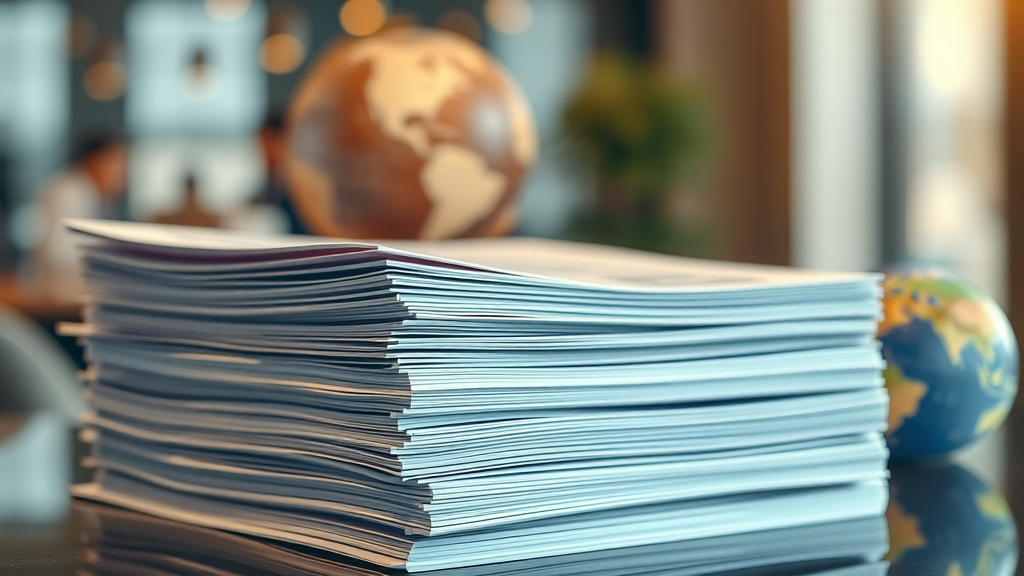Introduction: Are you looking to transform your business's approach to international markets? Global trade management might just be the key to unlocking unprecedented growth and efficiency. With a focus on compliance, automation, and optimization, global trade management can streamline operations and reduce costs, all while ensuring compliance with international trade regulations . Explore the pathways to mastery in this dynamic field and reap immediate business benefits.
“Navigating global trade can transform your business practices and open up new growth avenues.”
Understanding Global Trade Management
Definition of Global Trade Management: At its core, global trade management (GTM) involves overseeing and optimizing a company’s international trade operations, ensuring compliance with various trade laws and reducing unnecessary costs. GTM is a comprehensive approach that integrates various trade processes to ensure seamless transport of goods sold across borders.
Importance in Modern Business: In today's interconnected global marketplace, effective GTM is crucial. It not only allows businesses to save time and money but also enhances their ability to stay ahead of the competition by rapidly adapting to new market trends and regulatory changes. Efficient GTM contributes to a competitive edge by optimizing supply chains and minimizing the risk of compliance violations.

Critical Elements of Effective Global Trade Management
Automation of Trade Processes: Automation in GTM eliminates manual errors, speeds up operations, and reduces the cost and complexity of handling international shipments. Technologies like cloud logistics and proprietary GTM platforms are increasingly employed to manage trade efficiently.
-

Compliance and Regulatory Concerns: Compliance with international trade regulations is non-negotiable. Effective import and export management requires navigating a complex web of laws and regulations, addressing compliance risk by implementing strategic risk management solutions. For insights on overcoming common challenges in this area, explore our article on Common Challenges Faced by New Import-Export Professionals .
Supply Chain Optimization: Optimizing the supply chain involves enhancing logistics and reducing chain costs . This can be achieved through strategic sourcing and the utilization of data analytics to streamline processes.

How E-commerce Platforms Utilize Global Trade Management
Streamlining Operations: E-commerce platforms leverage GTM solutions to streamline their global operations, enhancing user experience , and ensuring timely delivery of goods.
Enhancing Customer Experience: By employing GTM, e-commerce businesses can offer more reliable shipping options and lower costs for consumers, leading to improved customer satisfaction and loyalty.
-

Data-driven Decision Making: E-commerce platforms utilize GTM data analytics for making informed decisions, enabling them to foresee market trends and adapt their strategies accordingly.
Navigating Global Trade Barriers and Regulations
Understanding Trade Agreements: Familiarity with trade agreements helps businesses to stay compliant and leverage benefits like duty exemptions and free trade advantages. For more on how global events can impact trade, see our insights on Ukraine Ceasefire Planning for Trade .
Managing Export Control Restrictions: Companies dealing with international trade must manage export control restrictions effectively to avoid hefty fines and preserve their market reputation.

Tools and Technologies for Global Trade Management
Popular GTM Solutions and Software: Various tools like Oracle Global and Onesource Global exist to help manage global trade efficiently by providing real-time insights into operations.
Emerging Trends in GTM Technology: Innovations such as AI capabilities and blockchain are transforming GTM by enabling unprecedented visibility and control over trade operations.

Global Trade Management Success Stories
Successful Implementations in Various Industries: Different sectors, from manufacturing to e-commerce, have successfully integrated GTM strategies to optimize their global operations and increase profitability.
Case Studies of Noteworthy GTM Applications: Examining case studies reveals how companies achieve significant cost savings and compliance improvements by effectively managing global trade. Discover how upcoming events like Interwire 2025 can further enhance opportunities for importers and exporters.

People Also Ask
What is global trade management?
Is global trade a good career?
What are the uses of the GTM solution?
What are 5 examples of global trade?
The Future of Global Trade Management
Predicted Trends and Changes: The future of GTM points towards increased digitalization and integration, offering businesses more streamlined processes and improved analytics.
Impact of Digital Transformation: Digital transformation is expected to revolutionize GTM, providing companies with greater efficiency and reduced operational costs by leveraging advanced technologies such as AI and big data.

Conclusion and Key Takeaways
Global trade management unlocks numerous benefits, including cost reduction and efficiency improvements.
Embracing GTM ensures businesses can adapt to a rapidly changing global market while maintaining compliance and efficiency.
Call to Action
Explore GTM solutions to enhance your business's global reach, streamline operations, and maximize efficiency.

FAQs
What is involved in global trade management?
How do I choose a GTM platform?
What challenges does GTM solve?
“Embracing global trade management is pivotal for business expansion and efficiency.”
 Add Row
Add Row  Add
Add 




Write A Comment